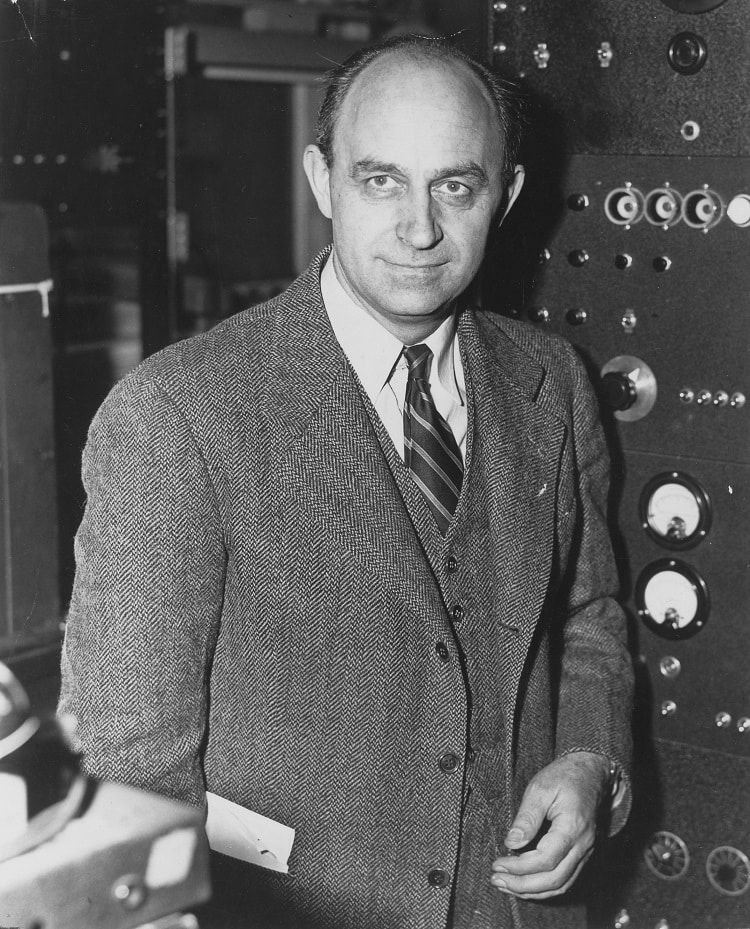Enrico Fermi (29 September 1901 – 28 November 1954) was an Italian and later naturalized American physicist. In 1938, Enrico Fermi was awarded the Nobel Prize in Physics.
Life and Career
Enrico Fermi was born on 29 September 1901, in Rome, Italy.
Fermi earned his doctorate in physics from the University of Pisa in 1922, with a thesis on X-rays.
He furthered his education with postdoctoral work in Germany, where he studied under leading physicists, including Max Born and Werner Heisenberg.
Fermi made significant contributions to quantum mechanics and statistical mechanics, particularly in the areas of statistical thermodynamics and quantum statistics.
He formulated the Fermi-Dirac statistics, which describe the behavior of particles with half-integer spins, such as electrons, in a quantum system.
Fermi was appointed as a professor of theoretical physics at the University of Rome in 1927.
In the late 1920s and early 1930s, Fermi made groundbreaking contributions to nuclear physics. He developed a theory of beta decay and made important contributions to the understanding of the weak nuclear force.
Due to the rise of fascism in Italy, Fermi, who was of Jewish descent, left Italy in 1938 and emigrated to the United States. He played a key role in the Manhattan Project, where he led the team that achieved the first controlled nuclear chain reaction on December 2, 1942, at the University of Chicago.
Later Career: After World War II, Fermi continued to work on various aspects of nuclear and particle physics. He also made significant contributions to the development of the hydrogen bomb.
Enrico Fermi died on November 28, 1954, in Chicago, Illinois, USA, at the age of 53, due to stomach cancer.
Award and Legacy
Enrico Fermi was awarded the Nobel Prize in Physics in 1938 for his work on induced radioactivity. He received the prize for his experimental demonstration of the existence of new radioactive elements produced by neutron irradiation and for the discovery of nuclear reactions brought about by slow neutrons.
Fermi is widely regarded as one of the greatest physicists of the 20th century. His work in nuclear physics, quantum mechanics, and statistical thermodynamics had a profound impact on the field of physics.
The unit of length in particle physics, the “fermi” (abbreviated as “fm”), is named in his honor.
Fermi’s contributions to the development of the atomic bomb during World War II played a crucial role in the course of history.
The Fermi National Accelerator Laboratory (Fermilab) in Batavia, Illinois, is named after him and continues to be a leading research institution in particle physics.

